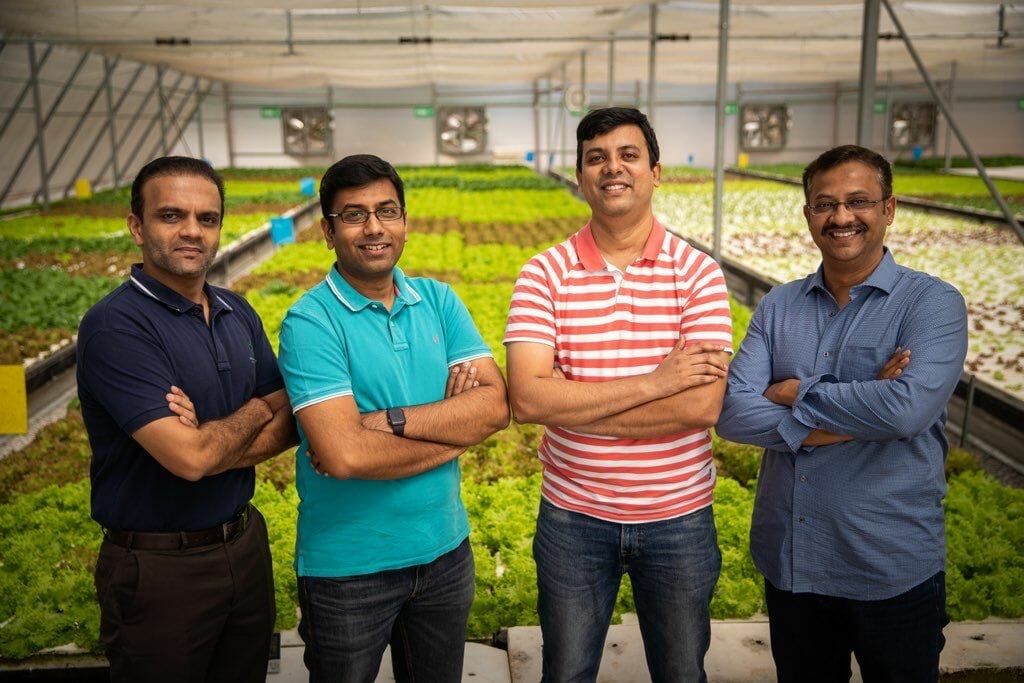India’s fresh produce industry has severe shortcomings. Bottom line: Not enough of it gets produced; nor can its consumers rely on its consistency or freshness. For the producers themselves, getting their tomatoes or lettuce to market at a fair and timely price is fraught with financially hazardous uncertainty.
Does this all herald an opening for vertical farming in India’s vast urban and peri-urban areas? Not quite, says Omnivore’s managing director Mark Kahn, speaking to AFN by phone to disclose his firm’s latest investment deal: “Vertical farming is not especially relevant in India,” he said. “Land is plentiful and the cost of energy is very high.”
$5.5m for ‘India’s Plenty’
Nevertheless, he said, there is still a large and growing demand for more nutritious produce that has not been doused in chemicals and has been grown in a place not far from where it is consumed. There is also an urgent and substantial need for more climate resilience, Kahn noted. So India’s venture capital equivalent to North American indoor farms like Plenty, Bowery or Brightfarms, he concluded, is a company that galvanizes and coordinates the tens of thousands of already existing greenhouses dotted on the outskirts of India’s major cities.
That resulted in Kahn’s team at Omnivore jointly leading a $5.5 million in Series A into Clover — a greenhouse agritech platform, which partners with farmers across India with the aim of marketing premium quality, branded, greenhouse-grown fresh produce via B2B and B2C channels. Clover “is partnering with the asset owners that are largely disorganised right now. Then aggregating the high-quality produce,” said Kahn. Most of the greenhouse owners are smallholders with about an acre to work with — “not enough to make a brand,” he added. In his due diligence process, Kahn and his fellow investors saw how this platform boosted the yields, the quality, and the profit margins of fresh produce at participating greenhouses. “We visited all the farmers they were working with,” he said. “The farmers we spoke to were all making much more money. There’s a stickiness to the platform.” Consumers, meanwhile, seemed happy with the added reliability of the quality on offer.
Two towering existing investors
Fellow leaders of this round were two towering existing investors: Mayfield and Accel. Both had invested in Clover’s seed round back in December 2018 while the company was still in stealth mode in Bangalore, having been co-founded by Avinash BR, Gururaj Rao, Arvind Murali, and Santhosh Narasipura
“Clover is transforming the perishables supply chain to better serve the new-age Indian consumer who values high quality produce,” underscored Prashanth Prakash, a partner at Accel, which recently closed its sixth India fund on $550 million.
It is the first time, despite years of investing on similar turf, that Omnivore and Accel have been side by side on an investment round; the same goes for the joint presence Omnivore and Mayfield in an investor lineup — Mayfield has been investing in India since 2006 and cumulatively manages $219 million on the subcontinent. In a statement, Vikram Godse, a managing partner at Mayfield, gave his view on what drew in this gigantic Silicon Valley VC firm: “Clover operates in the highly-fragmented but large agriculture market of India. By using cutting edge technology, systems, and processes, the Clover team, led by Avinash, is disrupting the agriculture value chain for fruits and vegetables. This not only brings about economic benefits to Clover’s B2B customers but also ensures significantly improved quality of produce is delivered to the end B2C consumer.”
Any insights on greenhouses in India? Let us know at [email protected]





